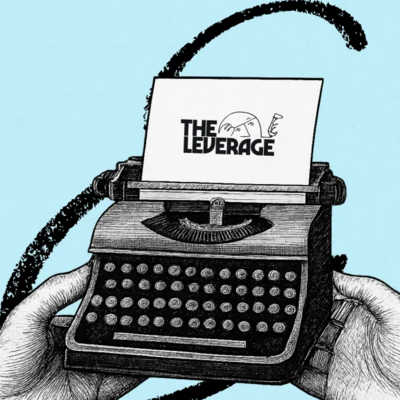
Was this newsletter forwarded to you? Sign up to get it in your inbox.
The average business book is a blog post stretched to 250 pages by an underpaid ghost writer who hates what their life has become.
That said, there are some that really do matter. A select few books pass the sniff test either by a.) offering robust data analysis that can be analyzed by outside experts, such as The Innovator’s Dilemma by Clayton Christensen, or b.) relying on case studies from the author’s unique experiences and putting forward a genuinely novel business idea, such as High Output Management by Andy Grove. By my count, the number of books that satisfies either of these conditions is fewer than 30.
Today, I’m excited to announce that there is a new book that deserves to be added to that painfully short list of required reading: Pattern Breakers: Why Some Startups Change the Future by Mike Maples, Jr. and Peter Ziebelman.
In Pattern Breakers, the venture-capitalist authors tackle a core conundrum of startups: Many of the most successful startups pivoted from their original business idea. Slack started as a video game company before conquering at-work communication, Pinterest began as a mobile shopping app called Tote before turning to image-sharing and social media, and YouTube was initially a video dating site with the slogan “Tune In, Hook Up.”
The book is almost entirely written in Maples's voice and from his perspective as a successful seed investor at the venture capital firm Floodgate, whose winners include Lyft, Twitch, Okta, and Chegg. A few years ago, Maples noticed that “something like 80 percent of [his] investment profits had come from pivots”—those companies that started by doing one thing and then found success doing something tangentially related or altogether different.
This was an uncomfortable realization for Maples. If his biggest winners were pivots, does that mean he just got lucky? Or did he invest in the wrong companies but the right people—those self-aware enough to pivot? As for the rest of us: If this is what a successful investor looks like, what does that mean for everyone else looking to start or pick the next great startup? It could be that we are doing the whole startup thing wrong.
Maples and Ziebelman (who works a different fund from Maples and lectures at Stanford Business School) teamed up to figure this conundrum out. Their answer is to propose a new theory of startup formation they call inflection theory, which has wholly shifted my perspective on company building—and I think it can do the same for you.
Startup success starts earlier than you think
Making a better product is a good way for a startup to die. Incumbents are so powerful that in order to challenge them, startups usually need to offer something radically different rather than simply something superior to what already exists. The only way to win is to completely alter the paradigm in such a way that incumbents can’t reconcile it with their current mode of operating. Airbnb beat Marriott not by offering a better hotel, but by offering a stay at a local’s home—a product Marriott was wholly unequipped to match.
What startups are looking for is called an inflection point. In mathematics, an inflection is a change in a curve, the point where things start changing.
Source: Wolfram Alpha.
Inflection theory takes this same bend-in-the-curve idea and applies it to the world beyond math. An inflection can be a large change in technology (such as LLMs), in regulation (the allowance of cross-state telehealth services), in consumer culture (such as the dawning age of digital minimalism), or in any other significant arena.
Successful founders are able to time these inflection points so that when the world starts to change, they are ready, such as creating software products that benefit from LLMs in 2021 or from smartphones in 2008. Crucially, these founders are also, through fortuitous coincidences of history and skill sets, uniquely suited to these markets. For example, now is an excellent time to be working in biotech. We’ve hit an inflection point on what you can do with deep learning and biology. There are billions of dollars to be made—if a founder can understand the science.
Inflection points also explain the pivot conundrum of startups. A founder’s initial job is not to even have an idea. It is to discover inflection points. Once they have discovered an inflection point, they must derive an insight from them. What’s an insight? The authors say it’s a “non-obvious truth about how one or more inflections can be harnessed to change human capacities and behaviors.” A properly applied insight will harness “one or more inflections to radically change human capacities and behavior.”
Only then do the founders start worrying about the question of what their company will sell. Pointing out how the world is changing is easy: It is simple to state a truth like, “Large language models will change the world.” It is enormously challenging to specify how the change will occur and what new behaviors it will enable. It is only when they’ve nailed the latter that great founders start to think up an idea for their startup.
So many of our greatest companies undergo pivots because the inflection point and subsequent insight can be applied to multiple ideas. Take this very publication: We originally thought we could build a bundle of every type of business writer. Our insight was that the creator economy could enable a new type of expert-led publication to be built. For various reasons, we were wrong. However, that insight around the creator economy and empowering experts also neatly translated into our current version of the company, where we still empower expert writers but also make software around the ideas they have. Our insight—that creators would be amazing distribution engines—stayed the same, but we pivoted our idea from a bundle of many writers to a publication with fewer writers more focused on creating niche products.
The Only Subscription
You Need to
Stay at the
Edge of AI
The essential toolkit for those shaping the future
"This might be the best value you
can get from an AI subscription."
- Jay S.
Join 100,000+ leaders, builders, and innovators

Email address
Already have an account? Sign in
What is included in a subscription?
Daily insights from AI pioneers + early access to powerful AI tools










Comments
Don't have an account? Sign up!
Excellent & thanks.
Exactly, Evan--"If they had published seriously rigorous analysis, this could have been a nuclear-level business bestseller. The best writers show their work." Thank you for the context. Thank you for clarifying why Every is no longer the company I fell in love with. I respect your decision to become a software business. It is your pivot. It is your life.
like this one a lot....sent note to my son who lives in Salt Lake City and media entrepreneur he should reach out and meet you ! thanks for all the great writing. best Craig
This is great, really enjoyed this. Love the density of the summary / review. Would be interested to see this concept applied in future essays!
This is great Evan, I was missing out on Every episodes but this one really put me back in touch with the writing.
What are the other 30 odd.books which passed your sniff test?!
Thanks, I bought the book. But if the inflection theory has merits, then how Maples managed to overlook AirBnB?